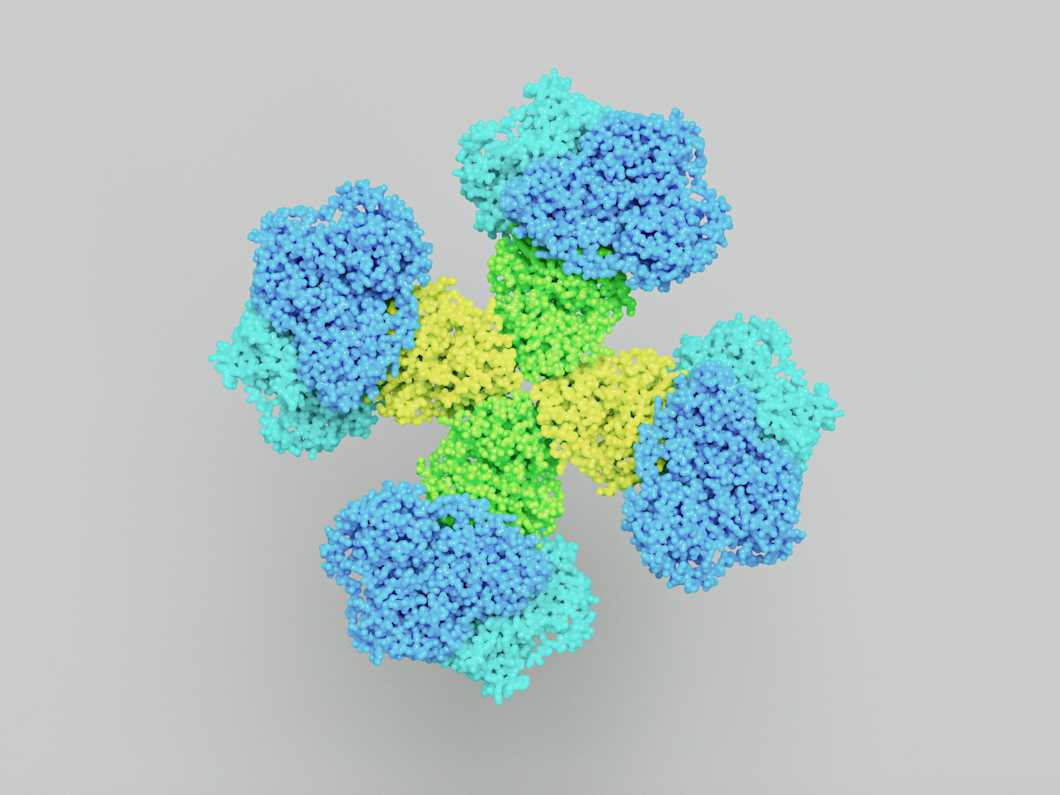MALDI Technique
MALDI (Matrix-Assisted Laser Desorption/Ionization) is a sample preparation and ionization technique used to prepare the sample before analysis with mass spectrometry. MALDI is widely applied in the preparation of delicate samples, such as peptides, proteins, lipids, and other large molecules prone to decomposition if less gentle ionization techniques are used.

- Fast turnaround times
- Personal service from method experts
- Competitive prices
- Result accuracy guarantee
What is MALDI and how does it work?
Matrix-Assisted Laser Deposition/Ionization (MALDI) is a sample preparation technique used to prepare an analyte for mass spectrometry. MALDI is a relatively gentle technique, which usually allows molecules to be analyzed without significant fragmentation.
The process begins by mixing the analyte with a matrix – usually a crystalline material dissolved in a solvent. The analyte/matrix solution is then spotted onto a metal plate, ready to begin the ionization process.
Next, the solution is irradiated with pulsed laser light. This causes the solution to desorb from the surface of the plate, removing both the matrix and the analyte. Here, the matrix helps to protect the analyte and prevents damage from the intense laser. During this process, a proton is transferred from a matrix molecule to the analyte. This essentially ionizes the analyte, without a need for more intensive methods that could damage the molecule.
Once the analyte is ionized, it can be passed on to a mass spectrometer for analysis. Most often, MALDI is coupled with a Time of Flight - Mass Spectrometer (ToF-MS), which causes the ions to become separated based on their individual masses and charges as they travel the length of the machine. Once the ions reach the end of the spectrometer, they are detected, and data on the masses and concentrations of the components within the sample can be collected.
Why is MALDI used?
MALDI is referred to as a “soft” ionization technique, which means that it can ionize molecules without causing them to break down into fragments. Often, ionization techniques involve removing electrons from the analyte, which in some cases can be too destructive.
In MALDI, ionization occurs through a proton transfer, which is far less destructive to delicate molecules. Furthermore, during the desorption process, the matrix helps to absorb the energy from the laser and protects the analyte from being over-exposed and breaking down. Overall this results in a technique that allows molecules to be analyzed without damaging them first, which in certain fields can be essential.
What are the limitations of MALDI?
Due to the need for an excess matrix, the analyte can sometimes be slightly obscured during analysis. This means that in some cases, small quantities of sample matter require extra optimization steps to achieve high-quality results. Furthermore, particularly large biomolecules can be difficult to identify if existing mass spectrum data does not exist to use as a comparison. Hence, it is always worth considering the type of sample to determine whether MALDI is the most appropriate option.
Sample requirements and preparation
Before MALDI can take place, the sample must first be dissolved in a suitable matrix solution. These can be based on water, organic solvents, or a combination of both, which allows both polar and nonpolar molecules to dissolve. Ideally, the sample should be as pure as possible. Both organic and inorganic contaminants can affect the quality of the results, so contamination should be avoided as far as possible.
Need a mass spectrometry analysis with MALDI preparation?
Measurlabs offers high-quality MALDI-TOF MS analyses for studying large molecules. Other mass spectrometry analyses from HRMS to LC-MS are also available. We have committed to delivering the highest quality analyses with short turnaround times even for batches of hundreds of samples, and our experts are always just a message away, ready to guide you from method selection to result interpretation. Reach out to us through the form below to request a quote, and join a growing network of 700+ companies who trust us to deliver fast and accurate testing every time.
Suitable sample matrices
- Peptides
- Proteins
- Carbohydrates
- Polymers
Ideal uses of the MALDI technique
- Analysis of biomolecules
- Identifying microorganisms
- Clinical diagnosis
- Genetic analysis
Ask for an offer
Fill in the form, and we'll reply in one business day.
Have questions or need help? Email us at info@measurlabs.com or call our sales team.
Frequently asked questions
MALDI is an ionization technique used for preparing delicate samples for mass spectrometry analyses.
Low levels of sample matter might require extra optimization steps in order to achieve high-quality results. Furthermore, particularly large biomolecules can be difficult to identify if existing mass spectrum data does not exist to use as a comparison.
Samples including peptides, proteins, carbohydrates, and polymers are suitable for MALDI.
Measurlabs offers a variety of laboratory analyses for product developers and quality managers. We perform some of the analyses in our own lab, but mostly we outsource them to carefully selected partner laboratories. This way we can send each sample to the lab that is best suited for the purpose, and offer high-quality analyses with more than a thousand different methods to our clients.
When you contact us through our contact form or by email, one of our specialists will take ownership of your case and answer your query. You get an offer with all the necessary details about the analysis, and can send your samples to the indicated address. We will then take care of sending your samples to the correct laboratories and write a clear report on the results for you.
Samples are usually delivered to our laboratory via courier. Contact us for further details before sending samples.